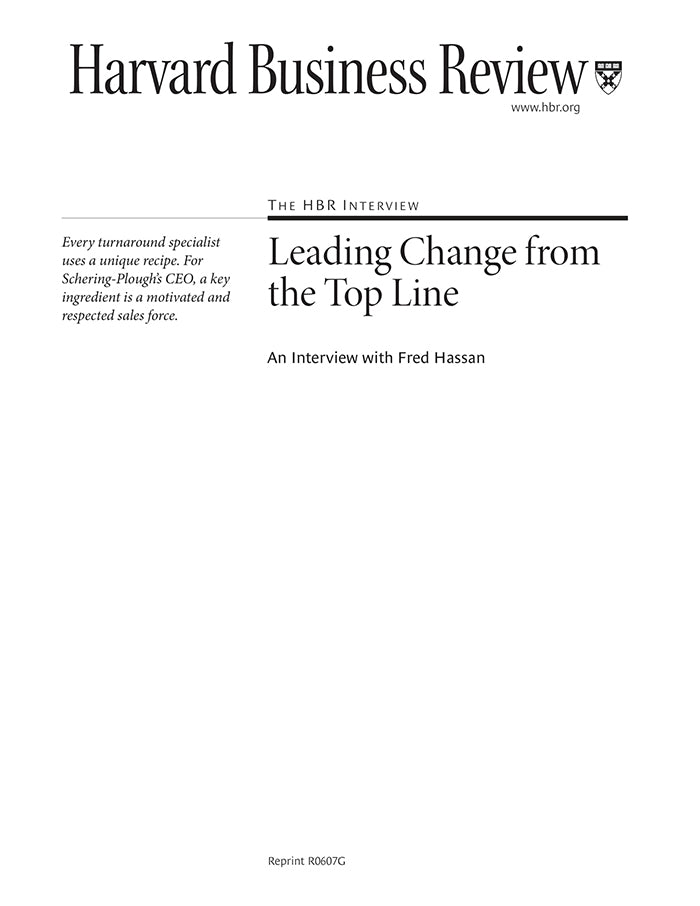Leading Change from the Top Line: The HBR Interview
受取状況を読み込めませんでした
Most CEOs who specialize in turning around struggling companies focus on costs. But for Fred Hassan, chairman and CEO of Schering-Plough, the primary focus in a turnaround is the top line. Since 2003, when Hassan took the helm at the global pharmaceutical company, he has overseen a remarkable recovery in performance. And consistent with his philosophy, the turnaround started with sales. Considering sales reps as less than crucial to strategy, Hassan cautions, is a big mistake. At Schering-Plough, he has concentrated on motivating and organizing salespeople to create trusting relationships with doctors. "You have to differentiate the salesperson in the customer's mind--just like you differentiate brands," he explains. A doctor may see 60 pharmaceutical reps on a regular basis but actually trust far fewer. To earn a spot in this inner circle, Schering-Plough reps try to turn each customer encounter into an occasion to help doctors provide better care for their patients. Schering-Plough also restructured its sales forces so that reps carry not just one kind of product, as they do in most pharmaceutical companies, but several. Covering a broad range of treatments gives reps more ways to build value-adding relationships with doctors. In this interview, Hassan discusses his success at Schering-Plough and his experiences at other pharmaceutical companies. During his career, he has built a reputation for being in tune with the front lines, as well as for reaching out to the managers who supervise salespeople. He has found that this level of personal attention not only makes reps feel respected, but also gives him valuable strategic insights.
【書誌情報】
ページ数:12ページ
サイズ:A4
商品番号:HBSP-R0607G
発行日:2006/7/1
登録日:2012/3/28


